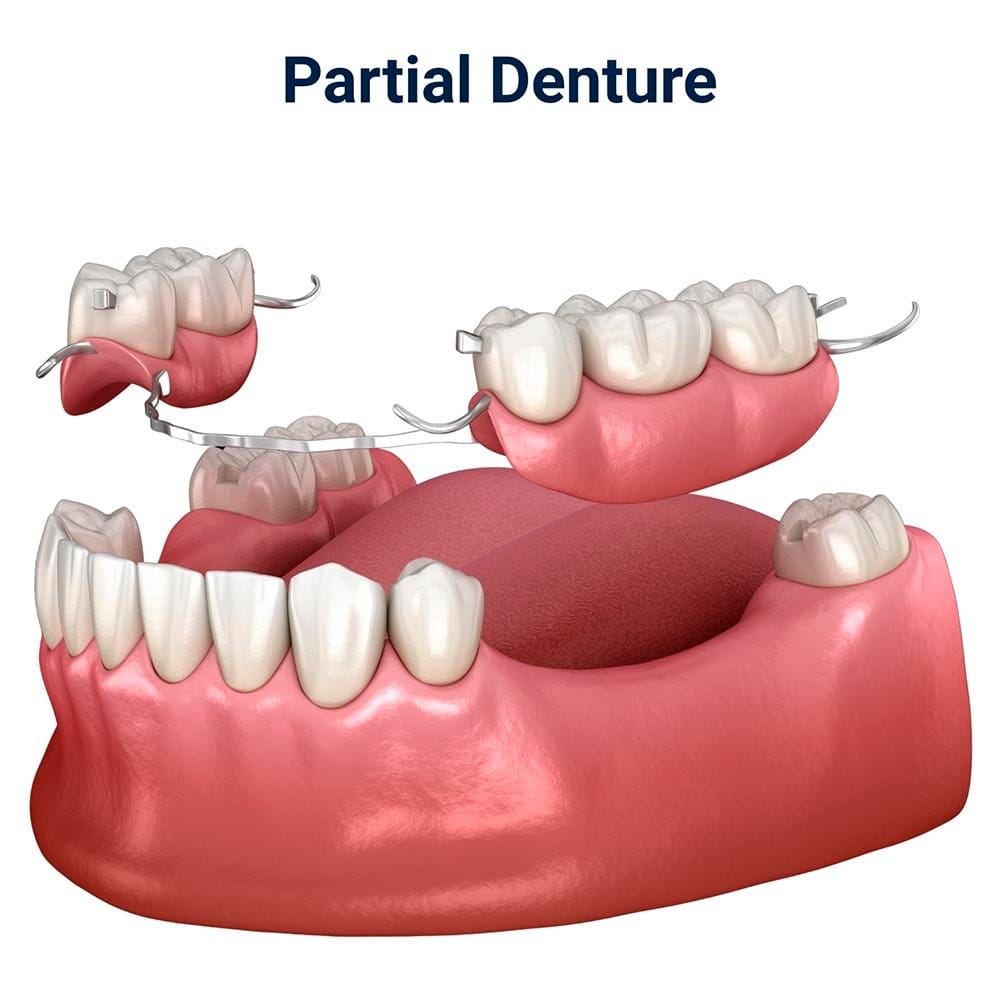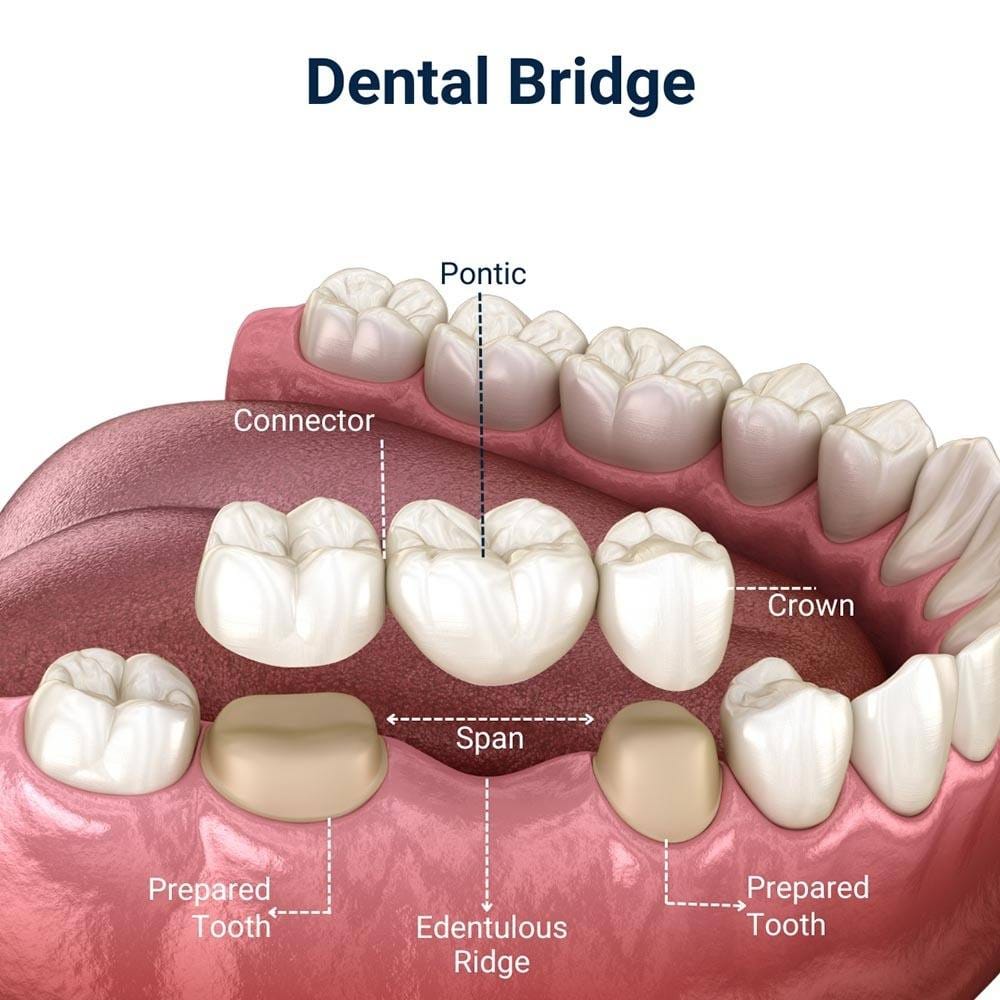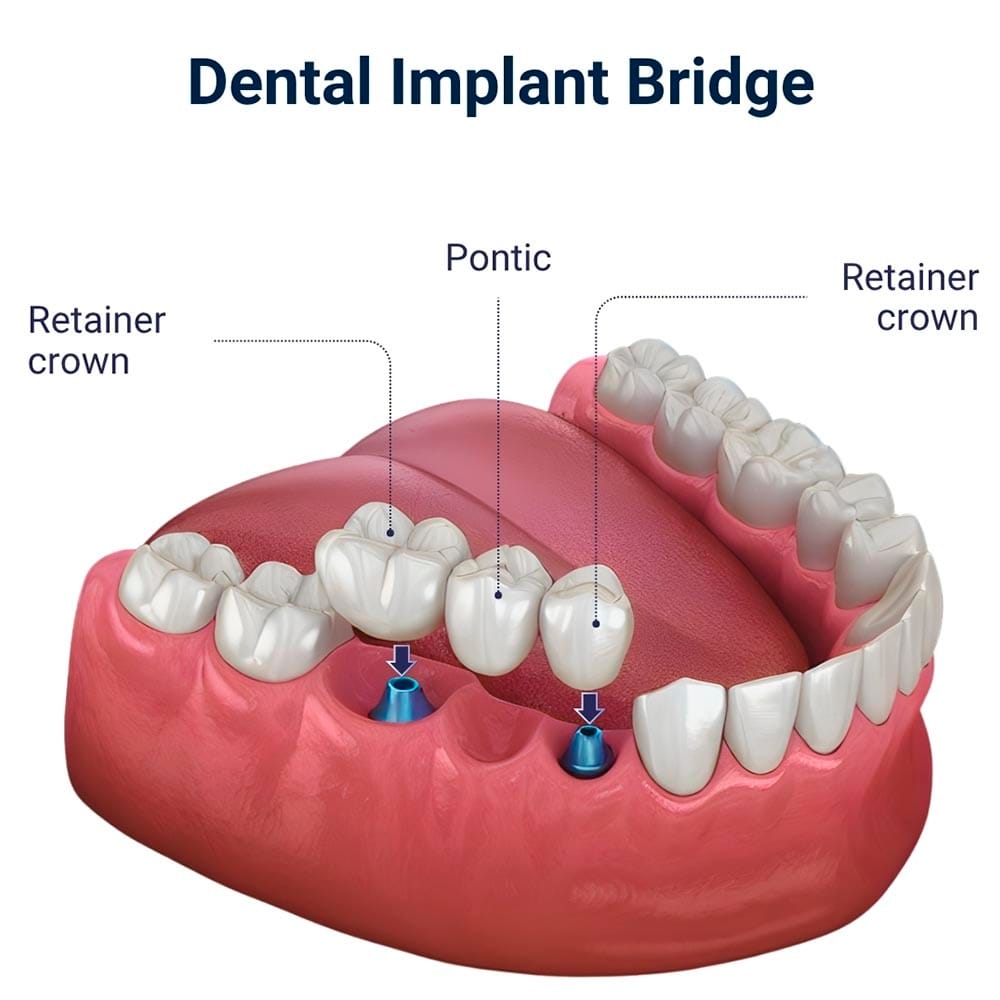Tooth loss is a common issue and can occur because of dental disease or trauma, or sometimes teeth are congenitally missing. Whatever the reason, it is difficult for your mouth to function optimally without a complete set of teeth. Even the loss of just one tooth can affect those remaining. The empty gap allows teeth nearby to drift toward the space. This has the effect of destabilizing these teeth and negatively impacts your bite.
The space can also act as a food trap, increasing the chances of developing tooth decay and gum disease. Then there is the issue of trying to eat comfortably and talk and laugh with others without exposing an unsightly gap in your smile. Many people who are missing several teeth will opt for a partial denture. On the face of it, this can seem like a great solution.
What Is a Partial Denture?
 A partial denture has a base plate often made from a lightweight metal alloy, supporting a gum-colored denture base which in turn holds the denture teeth. The metal alloy base is unobtrusive and provides additional strength to the denture. A partial denture rests directly on the gums, just like a full denture, but will often have clasps that fit around existing teeth, helping to hold the denture more firmly in place.
A partial denture has a base plate often made from a lightweight metal alloy, supporting a gum-colored denture base which in turn holds the denture teeth. The metal alloy base is unobtrusive and provides additional strength to the denture. A partial denture rests directly on the gums, just like a full denture, but will often have clasps that fit around existing teeth, helping to hold the denture more firmly in place.
Some have special attachments, where a crown is fitted over an adjacent natural tooth and which has a special slot so a corresponding attachment on the denture can clip into place. Partial dentures are quick to make, require no surgery, and are minimally invasive and affordable. People who lose additional teeth afterward can often have these teeth added onto a suitable partial denture.
Why Are Partial Dentures Not Always the Best Option?
Some people find their partial denture is a great solution, but others start to struggle. A partial denture is not very stable or strong, meaning some foods are off the menu, or you need to bite and chew extremely carefully, only using your natural teeth.
Having clasps fitted around your natural teeth can place these under additional strain, so these teeth may eventually fail. It isn’t always possible to hide these clasps, so they may be visible when you talk or smile.
A special attachment isn’t always a good solution, especially if it means grinding down a perfectly healthy tooth so it can be covered with a dental crown. Over time, dental crowns begin to age and leak, so harmful bacteria can potentially get underneath the crown, causing infection and decay. So what is the choice if you want to do away with your partial denture?
You have two main options: a dental bridge or dental implants.
Dental Bridge
 A tooth-supported dental bridge consists of crowns fitted over the teeth adjacent to the space left by the missing teeth, and replacement teeth are attached to the crowns to create a long-lasting, stable, hard-wearing bridge. The bridge is made from a ceramic material and is permanently cemented in place. The replacement teeth, each of which is called a pontic, rest directly on the gum and are designed and shaped to look exactly like real teeth.
A tooth-supported dental bridge consists of crowns fitted over the teeth adjacent to the space left by the missing teeth, and replacement teeth are attached to the crowns to create a long-lasting, stable, hard-wearing bridge. The bridge is made from a ceramic material and is permanently cemented in place. The replacement teeth, each of which is called a pontic, rest directly on the gum and are designed and shaped to look exactly like real teeth.
A tooth-supported bridge is a great option if the adjacent teeth are strong enough to provide adequate support. These teeth may come under significant strain if they are required to support several teeth, and in this case, your dentist may advise against this option. Also, sometimes these adjacent teeth are missing entirely, especially if you have lost teeth at the back of the mouth. In this case, your best option is to consider dental implants.
Dental Implants
 Probably the best option to replace missing teeth, implants for aging adults and younger patients alike have been widely used for decades, so you can be sure the technology is tried and tested. Implants can provide a long-lasting tooth replacement solution that could last for life. A dental implant bridge restores excellent biting and chewing strength, so you can eat just about anything you want without fear of your implant teeth becoming damaged.
Probably the best option to replace missing teeth, implants for aging adults and younger patients alike have been widely used for decades, so you can be sure the technology is tried and tested. Implants can provide a long-lasting tooth replacement solution that could last for life. A dental implant bridge restores excellent biting and chewing strength, so you can eat just about anything you want without fear of your implant teeth becoming damaged.
An implant is a small post or screw inserted surgically into the jawbone. Once in the bone, it acts as a small replacement tooth root, becoming fused with the bone around it within months. This process, called osseointegration, ensures the implant is strong enough to support a new implant crown, and an implant dentist can place several dental implants to support an implant bridge.
The bridge is fabricated from strong, lifelike porcelain and is usually screwed onto the dental implants. Once in place, the screw holes are covered with tooth-colored resin, making them invisible.
This means that your implant dentist can easily retrieve the bridge if they need to carry out any maintenance or cleaning on your implants or implant bridge.
There is no need to replace every missing tooth with a dental implant, unless the missing teeth are in separate areas of your mouth. In this case, single dental implants can be an excellent option and look exactly like real teeth emerging from your gums.
Dental implants are easy to care for but must be cleaned thoroughly to prevent the tissues surrounding them from becoming infected with a disease similar to gum disease. Your implant dentist can demonstrate how to clean around them thoroughly, and your dental hygienist will clean them professionally during regular hygiene appointments. If you stick to this simple routine, you should enjoy your implant teeth for years to come.
What About the Surgery Needed for Dental Implants?
The idea of having oral surgery can initially be a little concerning, but it’s worth bearing in mind this is a very common surgery using techniques that have been thoroughly researched and developed over the decades. When you visit an experienced implant dentist like a periodontist, you can rest assured they will use computer-guided surgery to plan and place your dental implants.
This advanced technique is extremely accurate, ensuring every dental implant is placed optimally during a smoother, quicker, and more comfortable procedure. Please bear in mind that if you feel at all anxious or nervous, then a good dental implant dentist can provide dental sedation to help you feel comfortable and relaxed.
If you’re tired of the discomfort and limitations of partial dentures, it might be time to consider a more permanent solution. Whether you’re exploring dental implants, bridges, or other advanced options, our team is here to help you choose the best fit for your lifestyle and smile goals. Call LuxDen Dental Center at (718) 717-8866 to schedule your consultation and take the first step toward a more confident, comfortable smile.
